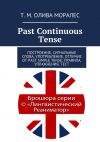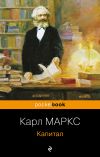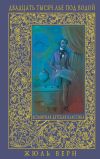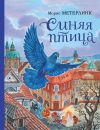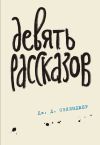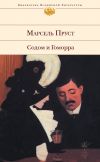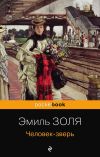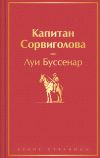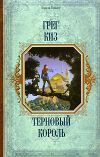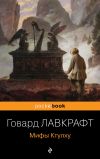
Автор книги: Елена Музланова
Жанр: Учебная литература, Детские книги
сообщить о неприемлемом содержимом
Текущая страница: 4 (всего у книги 12 страниц)
2. She is very glad: she (finish) her composition at last.
3. When he (come) home tomorrow, mother still (cook) dinner.
4. Lena is a very good girl. She always (help) her mother about the house. Today she (help) her mother since morning. She already (wash) the floor. Now they (cook) dinner.
5. What you (do) at 5 o’clock yesterday?
6. ‘What Nick usually (do) in the evening?’ ‘He (read), (watch) TV and (play) chess.’
7. When I enter the Medical College, I already (study) English for more than ten years.
8. When I rang up Jim, he (read) my book for 2 hours, and said he (return) it to me soon.
9. ‘You (do) your homework?’ ‘No! I still (do) it. I already (do) it for 2 hours, but I (not yet do) it.’
10. ‘What you (do) tomorrow?’ ‘We (go) to the theatre if she (bring) tickets.’
11. You (play) football for already 3 hours. Go home and do your homework!
12. When I (ring) up Mike yesterday, he still (learn) the poem which he (begin) learning at school.
13. Boris said that he (spend) his next holidays in the Crimea.
14. ‘You (see) Mary today?’ ‘Yes, I ______. I (see) her 2 hours ago.’
15. When you come to my place tomorrow, I (watch) TV. I already (do) my homework by the time you (come).
16. ‘Where you (spend) last Sunday?’ ‘I (spend) it in the country.’
17. ‘What you (read)?’ ‘I (read) a magazine.’ ‘How long you (read) it?’ ‘For half an hour.’
18. By 8 o’clock yesterday I (do) my homework and at 8 I (play) the piano.
19. How many pages you (read) by five o’clock tomorrow?
20. When I (come) home yesterday, he (tell) me he (wait) for me for already an hour.
Test 36. Read the text and put the verbs in brackets into the correct past forms.
Last year Sam and Joanna decided to buy a house. They (1)(save up) for ages, and by the end of April they (2)(put by) enough for the deposit on a house. They (3)(live) in a tiny flat at the time and Joanna (4)(insist) that she wanted a house with a big garden. They (5)(search) for only a few days when they found exactly what they (6)(look for) – a two-bedroomed house in nearly an acre of garden. Unfortunately the owner (7)(ask) much more than they (8)(be) willing to pay, and when they (9)(look) more closely at the interior, they (10)(see) that whoever (11)(live) there before, (12)(make) an absolute mess of the walls and floors. Still Joanna (13)(like) the garden and the location so much that she (14)(manage) to convince Sam that, despite the price, it (15)(be) the perfect house for them.
Test 37. Read the text and put the verbs in brackets into the correct form.
Farmers, as we all (1)(know), (2)(have) а hard time of it in Britain lately, and (3)(turn) to new ways of earning income from their land. This (4)(involve) not only planting new kinds of crops, but some strange ways of making money, the most unusual of which has got to be sheep racing. Yes, you (5)(hear) me correctly! А farmer in the West of England now (6)(hold) sheep races on а regular basis, and during the past year over 100 000 people (7)(turn up) to watch the proceedings. ‘I (8)(pass) the farm on my way to the sea for а holiday,’ one punter told me, ‘and I (9)(think) I’d have а look. I (10)(not believe) it was serious, to tell you the truth.’
According to а regular visitor, betting on sheep is more interesting than betting on horses. ‘At proper horse races everyone (11)(already study) the form of the horses in advance, and there are clear favourites. But nobody (12)(hear) anything about these sheep! Most people (13)(find) it difficult to tell one from another in any case.’
‘I (14)(stay) to watch the races, and I must admit that I (15)(find) it quite exciting. In а typical race, half а dozen sheep (16)(race) downhill over а course of about half а mile. Food (17)(wait) for them at the other end of the track, I ought to add! The sheep (18)(run) surprisingly fast, although presumably they (19)(not eat) for а while just to give them some motivation. At any rate, the crowd around me (20)(obviously enjoy) their day out at the races, judging by their happy faces and the sense of excitement.’
Test 38. Read the text and put the verbs in brackets into the correct form.
Ask hundreds of people what they (1)(do) on а certain day in August next year, or the year after, and there (2)(be) only one reply. Provided of course that the people you (3)(ask) (4)(belong) to the Elvis Presley Fan Club. Although the King of Rock and Roll (5)(die) nearly two decades ago, his fans (6)(meet) every year since then outside his home in Memphis, Tennessee, to show respect for the singer they (7) (love) so much. Fans like Jean Thomas, from Catford in South London. Jean (8)(visit) Gracelands, the house where Elvis (9)(suffer) his fatal heart attack, twice in the past five years. ‘The first time I (10)(borrow) the money from my Mum, as I (11)(not work) then. But two years ago I (12)(get) married and since then I (13)(work) in my husband Chris’s garage. Chris and I (14)(go) together last year, and we (15)(think) of spending two or three months in the USA next year. I (16)(always want) to visit some of the places where Elvis (17)(perform). Like Las Vegas for example.’ Jean says that Elvis (18)(be) her obsession ever since she (19)(be) ten years old, and she (20)(own) every single one of his records, good and bad.
5.2. PASSIVE VOICE

Test 39. Put the verbs in brackets into the correct passive form.
1. You (take) around the city tomorrow.
2. Melons (grow) in the south of France.
3. The ship-building industry (reduce) since 1970.
4. He (shock) by the story at our last meeting.
5. This text must (translate) tomorrow.
6. In 1980 the Olympic Games (hold) in Moscow.
7. The room (not clean) yet.
8. Mercedes cars (make) in Germany.
9. The furniture should (dust) every week.
10. The streets (decorate) at the moment.
11. The translation (do) in time. Everyone was glad.
12. We (impress) by her acting at her last concert.
13. More raw materials (import) in the future.
14. Your health can (improve) with more exercise.
15. The books have to (return) to the library.
16. The letters (send) this week.
17. Today a lot of electronic goods (manufacture) in SouthEast Asia.
18. The examination (hold) next Friday.
19. Coal (mine) in Wales for centuries.
20. Where’s the radio? It (repair)?
Test 40. Put the verbs in brackets into the correct passive form.
1. When the telephone (invent)?
2. I can’t give you these articles.They (translate) now.
3. The letter (not write) tomorrow.
4. English (speak) all over the world.
5. She showed me the picture that (paint) by her husband.
6. My dress is clean now. It (wash).
7. All the questions on the paper must (answer).
8. These houses (build) in 1500.
9. Tomorrow by 3 o’clock everything (prepare).
10. Rugby (play) since 1845.
11. My house (paint) the whole day yesterday.
12. Flowers usually (sell) in the streets.
13. This film (discuss) at the next lesson.
14. Your composition (write) yet?
15. I couldn’t use my hotel room because it (not clean) yet.
16. It was very dark. Nothing could (see).
17. What usually (make) from milk?
18. I’m sure that the invitation (receive) by next Sunday.
19. Wait a little! Your question (discuss) now.
20. The UK (wash) by the Atlantic Ocean and the North Sea.
Test 41. Put the verbs in brackets into the correct passive form.
1. When the first restaurant (open) on the Moon?
2. Pineapples (not grow) in England.
3. The room (clean) yet? Can I use it?
4. When you return from your journey, this novel already (publish).
5. Where are the skis? They (repair) now?
6. The results (announce) tomorrow morning.
7. All the work (do) by 6 o’clock yesterday.
8. The plants should (water) every week.
9. What kinds of medicines usually (make) from plants?
10. Coca-Cola (produce) since 1895.
11. When the first car (construct)?
12. When I came to the office, the text already (translate).
13. A new school (build) in our district now.
14. Your shirt is dirty. It must (clean).
15. The statue broke while it (move) to another room.
16. These books (buy) two days ago.
17. Don’t worry! Your keys (find). Here they are!
18. Russia (rule) from Moscow.
19. When I came, the film still (discuss).
20. I think the report (not write) by next Monday.
Test 42. Read the text and put the verbs in brackets into the correct passive form.
Policeman Shot Dead in Training A police officer has died after suffering a gunshot wound to the chest in a training exercise in Manchester. The male officer died in hospital after the incident, which took place in Thorp Road, about a mile from the city centre, at about 11.35. The officer (1)(take) to North Manchester General Hospital, where he (2)(pronounce) dead later. Police sealed off entrances to the site but forensic officers could (3)(see) in the yard outside the warehouse, which (4)(cordon) off with yellow tape. An ambulance was also on site. It was not immediately clear whether the officer (5)(shoot) accidentally by one of his own colleagues. A Greater Manchester Police spokesman said the training exercise (6)(hold) in a “reasonably routine” way. The Independent Police Complaints Commission (7)(notify) about the fatal shooting and three investigators (8)(send) to the scene to carry out an initial assessment. The area where the incident happened is the site of a disused former electronics factory, which (9)(know) locally as the Sharp Building. The factory (10)(surround) by other industrial units and wasteland.
5.3. ACTIVE OR PASSIVE?
Test 43. Active or passive? Choose the correct verb form.
1. The book (wrote/was written) by Hardy.
2. Four people (have killed/have been killed) in а train crash.
3. А famous architect (was built/built) the bridge.
4. The house (bought/was bought) by а pop-star.
5. Local police (have been arrested/have arrested) the bank robber.
6. I (arrived/was arrived) last Friday.
7. The room (will сlеаn/will be cleaned) later.
8. ‘Did you go to the party?’ ‘No, I (didn’t invite/wasn’t invited).’
9. It’s а big company. It (is employed/employs) two hundred people.
10. Tom (has lost/has been lost) his key.
11. Many accidents (caused/are caused) by dangerous driving.
12. А cinema is а place where films (show/are shown).
13. People (aren’t used/don’t use) this road very often.
14. This house (built/was built) in 1930.
15. This situation is serious. Something must (do/be done) before it’s too late.
16. My car (has disappeared/has been disappeared).
17. Have you heard the news? The President (has shot/has been shot).
18. А new supermarket (will be built/will built) here next year.
19. (in а shop) ‘Can I help you, madam?’ ‘No, thank you. I (am serving/am being served).’
20. When I came to the party, John (had already been gone/ had already gone) home.
Test 44. Active or passive? Put the verbs in brackets into the correct form.
1. The computer (use) at the moment.
2. Your house looks different. You (paint) it?
3. Water (cover) most of the Earth’s surface.
4. Most of the Earth’s surface (cover) by water.
5. When we got to the stadium, we found out that the game (cancel). So we couldn’t see the match.
6. The park gates (lock) at 6.30 p.m. every evening.
7. The letter (post) a week ago but it (arrive) yesterday.
8. Ann couldn’t use her office yesterday. It (redecorate) the whole day.
9. At 10 o’clock tomorrow, Ann will be in her office. She (work) then.
10. Ron’s parents (die) when he was very young. He and his sister (bring up) by their grandparents.
11. While I was on holiday, my camera (steal) from my hotel room.
12. Look! A new hospital (build) near the airport.
13. Where these photographs (take)? In London? You (take) them?
14. Two people (arrest) last night.
15. The computer broke down yesterday, but now it’s OK. It (work) again. It (repair).
16. The man next door (disappear) six months ago. Nobody (see) him since then.
17. The room looked nice. It (clean).
18. There’s somebody walking behind us. I think we (follow).
19. A mystery is something that can’t (explain). 20. I’m sure that by the time we come to the theatre, all the tickets already (sell).
Test 45. Active or passive? Put the verbs in brackets into the correct form.
1. How she usually (get) to school?
2. When we came, the dinner still (cook).
3. I was very tired because I (run) for an hour.
4. Jane ever (hear) this story?
5. When summer (come), we’ll go to the seaside.
6. Please wait! Your question (discuss) now.
7. She (paint) the door by the time we come back?
8. The book (publish) next month.
9. How long you (have) this book?
10. The cooking usually (do) by my mother.
11. ‘When he (get) this letter?’ ‘A week ago.’
12. If she (not come), we won’t be able to finish the work.
13. They (work) the whole evening tomorrow.
14. This novel (write) last year?
15. Tom (write) this report for two days.
16. What novel she (write) now?
17. What you (do) when I called you?
18. The clock (repair) by next Monday.
19. When the manager came, we (not write) all the letters yet.
20. Your bag (find) yet?
Test 46. Read the text and put the verbs in brackets into the correct form (active or passive).
The Public Welfare System in America The majority of Americans – about 85 percent – are neither wealthy nor poor. They (1)(belong) to the broad economic category considered to be ‘middle class’. But they (2)(trouble) by the fact that poverty (3)(exist) in their land. The US (4)(know) for its wealth, its abundance of food and its opportunity for everybody to build a good life. The goal is to operate a free enterprise economy in which everyone who (5)(want) to work can find it. Despite that goal, there is always a percentage of people who want to work but who cannot find employment for which they (6)(suit). In recent years, the official figure for unemployment (7)(average) between five and seven percent.
The public welfare system in the USA is so large that in the early and mid-1980s nearly one half of all money spent by the federal government (8)(be) for ‘social payments’ – money used to help people. The percentage (9)(double) since the 1960s, when only about 25 percent of the money spent by the federal government (10)(support) these welfare needs.
In addition to federal programs, there are programs in each of the 50 states which (11)(design) to help people in need.
Some people believe that increased direct expenditure by the federal government is the best means to eliminate poverty. Others say the welfare system (12)(not reward) individual initiative – it (13)(encourage) people to stay unemployed and spend, rather than save money. All of the studies and the arguments about poverty and public welfare programs show that Americans (14)(concern) about a problem that (15)(not solve) yet.
Test 47. Read the text and put the verbs in brackets into the correct form.
Jason Peters is a wildlife cameraman. He (1)(film) wild animals for documentary programmes on TV. For fifteen years he (2)(explore) the world’s jungles. Several times he (3)(bite) by snakes. Alligators (4)(attack) him more times than he can remember. But Jason (5)(enjoy) his lifestyle. ‘If (6)(not have) this job,’ he says, ‘my life (7)(be) boring.’ Last year he (8)(work) in Venezuela. While he (9)(film) the Matis Indians there, he learned some interesting facts which he (10)(not know) before. ‘The Matis (11)(eat) monkeys’, says Jason, ‘but they (12)(not eat) other animals which are part of their religion.’ At the moment he (13)(prepare) to go back to the Amazon, that’s why he (14)(study) the Amazon people. He (15)(already read) a lot of books about them.
6. CONDITIONAL SENTENCES. SUBJUNCTIVE MOOD

Test 1. First or Second Conditional? Put the verbs in brackets into the correct tense.
1. If he (run), he’ll get there in time.
2. They would be rather offended if I (not go) to see them.
3. If you took more exercise, you (feel) better.
4. If it (stop) snowing, we can go skiing.
5. If I was offered a job, I think I (take) it.
6. I’m sure Ann will lend you the money. I’d be very surprised if she (refuse).
7. If you (not go) away, I’ll send for the police. 8. If I sold my car, I (not get) much money for it.
9. The police (arrest) him if they catch him.
10. We (not have) any money if we didn’t work.
11. Tell Mary to ring me up if you (see) her.
12. What would happen if I (not come)?
13. If he (like) the house, will he buy it?
14. Carol gave me this ring. She (be) very upset if I lost it.
15. Our friends are expecting us. They will be disappointed if we (not come).
16. What will happen if my parachute (not open)?
17. I’m sure Jane (understand) if you explained the situation to her.
18. What you (do) if you lost your passport?
19. If we (tell) them the truth, they wouldn’t believe us.
20. If I lend you $1000, when you (repay) me?
Test 2. First or Second Conditional? Put the verbs in brackets into the correct tense.
1. If it (rain) this weekend, we (not be able) to go to the country.
2. Give me Ann’s letter. If I (see) her, I (give) it to her.
3. I have to work hard, so I’m very busy. But if I (have) any free time, I (go) in for swimming.
4. If I (be) taller, I (can) play basketball. But I’m too short.
5. Please stop talking! If you (not start) your meal now; it (go) cold.
6. If you (have) any problems, let me know and I (help) you.
7. You’re a wonderful cook! If I (can) cook as well as you, I (open) a restaurant.
8. We must hurry! If he (be) late, we (leave) without him.
9. He (have) a day off tomorrow if he (work) hard today?
10. That coat looks awful! I (not buy) it if I (be) you.
11. I think there are too many cars. If there (not be) so many cars, there (not be) so much pollution.
12. It’s a pity I’m not rich. If I (be) rich, I (have) a yacht.
13. I’m going out now. If anybody (phone) while I (be) out, can you take a message?
14. This soup isn’t very good. It (taste) better if it (not be) so salty.
15. ‘What shall we do tomorrow?’ ‘Well, if it (be) a nice day, we (not stay) at home.’
16. Liz is tired all the time. If she (not go) to bed so late, she (not be) tired.
17. You were rude to Mike. If I (be) you, I (apologize).
18. We’re lost. If we (have) the map with us, we (know) where we are.
19. If I still (feel) sick, I (not go) on holiday next weekend.
20. I don’t get any help at work. My job (be) easier if I (have) a secretary.
Test 3. Second or Third Conditional? Put the verbs in brackets into the correct tense.
1. If you (not be) busy, we could go for a walk.
2. If I (have) enough money, I would have taken a taxi.
3. If I were you, I (buy) a new suit.
4. If I (be) interested in the film, I would have gone to the cinema.
5. If we (not take) the wrong turning, we wouldn’t have arrived late.
6. If he had more time, he (take) up tennis.
7. You could have come first if you (run) faster.
8. If she (not have) a car, we would have to go by bus.
9. What (do) if you lost your job?
10. If I (not feel) tired, I would have gone to bed later.
11. If Bruce had asked me, I (say) ‘yes’.
12. If I (not take) an umbrella, I would have got wet.
13. If he knew that it was dangerous, he (not come).
14. If someone (give) you a helicopter, what would you do with it?
15. They (not miss) the plane if they hadn’t woken up late.
16. If you (ask), I could have told you the answer.
17. I could help you with the text if I (know) Greek.
18. If only he had asked, I (help) him.
19. If I (invite) to my friend’s party, I would never dress casually.
20. If she (pass) her driving test, she would have bought a car.
Test 4. Second or Third Conditional? Put the verbs in brackets into the correct tense.
1. We can’t afford to go to Austria. If we (have) more money, we (go) skiing there.
2. I didn’t know you were in hospital. If I (know), I (go) to visit you.
3. Ken got to the station in time to catch his train. If he (miss) it, he (be) late for his interview.
4. Tom doesn’t know Spanish. If he (know) it, he (help) us to translate this article.
5. It’s good that you reminded me about Ann’s birthday. I (forget) it if you (not remind) me.
6. If I (have) your address when I was in New York, I (send) you a postcard.
7. If I (know) the results of exam now, I (phone) her immediately.
8. ‘How was your holiday?’ ‘It was OK, but I (enjoy) it more if the weather (be) better.’
9. I took a taxi but the traffic was heavy. It (be) quicker if I (walk).
10. I’m not tired. If I (be) tired, I (go) home now.
11. I wasn’t hungry. If I (be) hungry, I (eat) something.
12. I’m glad we had a map. I’m sure we (get) lost if we (not have) one.
13. We decided not to move. We (lose) a lot of money if we (sell) our house.
14. If you (be) a bird, you (can) fly.
15. If she (ask) Tom yesterday, he certainly (tell) her about it.
16. He wasn’t ill last week. If he (be) ill, he (not play) football.
17. I don’t want to get up so early. If it (be) Sunday today, I (not have) to get up.
18. I’m glad we had a mobile phone. If we (not contact) the police, they (not catch) the criminals.
19. You should stop smoking! You (not feel) so bad if you (not smoke) too much.
20. You didn’t ring me up yesterday. If you (call) me, I (tell) you everything.
Test 5. Conditional sentences: mixed types. Put the verbs in brackets into the correct tense.
1. If he (pass) his examination, we’ll have a celebration.
2. What (happen) if I press this button?
3. If it (not rain) now, we would go to the country.
4. If we had booked tickets beforehand, we (not have) to wait now.
5. If I (be) you, I would ring him up myself.
6. If you don’t give me more information, I (not be) able to help you.
7. If it (not be) so cold yesterday, we would have gone to the forest.
8. If he were careful, he (not break) things.
9. If you (not help) me, I wouldn’t have been able to finish the work yesterday.
10. We won’t go to the theatre if he (not bring) tickets.
11. If he (not be) at home, leave him a note.
12. If you had learnt the words, you (not do) so many mistakes.
13. If Ann were slimmer, she (be) much more attractive.
14. If I (have) a chance last year, I would have visited Great Britain.
15. I will let you know if he (come).
16. If you (not hurry), you’ll miss the train.
17. I would buy this book if it (not be) so expensive.
18. ‘Does she love him?’ ‘Of course she does. If she (not love) him, she (not marry) him.’
19. ‘What you (do) if you saw a ghost?’ ‘I (run) a mile.’
20. If I (not be) busy, I’ll visit you.
Test 6. Conditional sentences: mixed types. Put the verbs in brackets into the correct tense.
1. If I (not borrow) the money, I wouldn’t have been able to buy the bike.
2. If he (not catch) the bus, he would have been late for work.
3. If she had known you needed the eggs for the cake, she (not use) them all.
4. She (win) the match if she hadn’t hurt her ankle.
5. If you (not put up) this shelf, you won’t have anywhere to put your books.
6. If she (change) her job, she would be a lot happier.
7. If I were you, I (tell) her how you feel.
8. If you continue to shout so loudly, you (wake up) the baby.
9. Even if she (ask) him, he wouldn’t have agreed to come.
10. Unless you (feel) any better, you can take the rest of the day off.
11. If they (not threaten) her, she wouldn’t have left.
12. I (not trust) her if I were you.
13. If you’re patient for a few minutes, I (be able) to finish this.
14. If he goes on making so much noise, I (punish) him.
15. If we (intend) to spend the day in Paris, we would have bought a day pass.
16. Keep your voice down in case she (overhear) us.
17. If he (be) more experienced, he would be more likely to get the job.
18. If the food (not be) so bad, they wouldn’t have complained.
19. Sales will increase provided that the advertising campaign (be) successful.
20. If she (spend) less on clothes, you would be able to save some money.
Test 7. Put the verbs in brackets into the correct form.
1. Bruce wishes he (have) more money so he could buy a new sweater.
2. The weather was cold while we were away. I wish it (be) warmer.
3. I wish I (be) taller so that I could be in the basketball team.
4. I wish you (stop) watching television while I am talking to you.
5. It was a terrible film. I wish we (not go) to see it.
6. I wish the holidays (come) so we could go off to the seaside.
7. I wish Ann (be) here. She’d be able to help us.
8. Yesterday I got very wet in the rain. I wish I (have) an umbrella.
9. I wish we (go) to the match next Saturday but we’re visiting my uncle instead.
10. I wish you (keep) your mouth shut yesterday. Now Mary knows everything.
11. It’s freezing today. I wish it (not be) so cold. I hate cold weather.
12. I wish I (not lose) all my money. Now I’m broke.
13. The weather is awful. I wish it (improve).
14. I feel sick. I wish I (not eat) so much cake.
15. I’m fed up with this rain. I wish it (stop) raining.
16. What I said was stupid. I wish (not say) anything.
17. It’s very crowded here. I wish there (not be) so many people.
18. I was late yesterday. I wish I (take) a taxi.
19. I wish it (be) summer now.
20. The phone has been ringing for five minutes. I wish somebody (answer) it.
Test 8. Put the verbs in brackets into the correct form.
1. If you had let me know yesterday, I already (bring) you my book.
2. If he (get) this book, I’ll be happy.
3. I wish I (know) Spanish.
4. If he (be) a poet, he would write beautiful poetry.
5. If my brother (be) in trouble, I’ll help him.
6. If they (know) it before, they would not have gone there.
7. If he (be) more courageous, he would not be afraid.
8. I wish you (go) skiing with me yesterday.
9. If it is not too cold tomorrow, I (not put) on my coat.
10. If he had warned me, I (do) the work in time.
11. If you (not miss) the train, you would have arrived in time.
12. I wish I (not have) to do my homework every day.
13. If it (snow), the children will play snowballs.
14. I am a doctor, but if I (be) a musician now, I (be) much happier.
15. I wish we (meet) again next summer.
16. If he did not read so much, he (not know) English so well.
17. If the weather (be) fine yesterday, we (play) outside.
18. If my sister (not go) to the south, we’ll spend the summer together.
19. If I (have) this rare book, I would gladly give it to you.
20. I wish I (be) at yesterday’s party.
Test 9. Put the verbs in brackets into the correct form.
1. I wish I (see) this film, but I couldn’t go to the cinema.
2. If he (live) in St. Petersburg, he would go to the Hermitage every week.
3. We (go) out of town tomorrow if the weather (not to change) for the worse.
4. If they had known it before, they (take) measures.
5. If my friend didn’t work so hard, we (meet) every day.
6. I wish you (read) more in the future.
7. If I (be) you, I would apologize.
8. If it (rain), we’ll have to stay at home.
9. I wish it (not be) winter now.
10. If you don’t give the child much fruit, he (not be) healthy.
11. You would have understood this rule if you (not miss) the lesson.
12. If I (meet) you yesterday, I (tell) you about it.
13. I wish I (not give) Nick my watch: he has broken it.
14. If he (be) a scientist, he would invent a time machine.
15. If he (work) hard, he would have achieved great progress.
16. If my sister (be) in Moscow, she’ll meet you at the railway station.
17. If she (not be) so lazy, she would study much better.
18. I wish I (live) in London now.
19. If he (ring) me up, I’ll tell him a secret.
20. If you had not wasted so much time, you (not miss) the train.
Test 10. Complete this text using the correct form of the verbs in brackets.
All the Difference I often wonder how my life (1)(be) different if on that particular day I (2)(go) in the other direction. Or what (3)(happen) if – in those seconds – I (4)(walk) a little bit faster? She (5)(not be) able to do what she did, say things she said. If it (6)(not be) for these shy words of greeting, I (7)(not be) here now – I probably (8)(live) in the same city I grew up in. It is amazing how our lives depend on the most minute details: a split-second decision which makes all the difference. I (9)(ever find) romance at all if I (10)(not meet) Julia that day and if she (11)(decide) to walk on that path beside the trees? I possibly (12)(not do) what I did in my life if we (13)(not meet) on that bright, sunny morning. And if we (14)(not be) together now, I (15)(not be) the happiest man in the world.
Test 11. Complete this text using the correct form of the verbs in brackets.
Long Summer Break Under Threat The Minister for Education thinks that if the summer break were shorter, children (1)(do) much better at school. ‘Imagine how you would feel,’ he (2)(tell) a press conference last week, ‘if you (3)(have) two months off work. You (4)(spend) a lot of time trying to get used to (5)(be) back at work. This is exactly what we ask children (6)(do) during the long summer holidays. If you ask teachers they (7)(tell) you that when kids get back from their summer break, they just (8)(not carry) on from where they stopped in June. They (9)(have) to do the same things again. If the summer holidays (10)(be) shorter, this would not happen. If our proposal (11)(go) ahead, we will introduce a system based on five terms a year. This means children (12)(have) lots of breaks with plenty of opportunities (13)(relax) during the year. If we didn’t have these long summer holidays, we (14)(do) much more work in our schools, so we think it (15)(be) time for a change.’
Правообладателям!
Это произведение, предположительно, находится в статусе 'public domain'. Если это не так и размещение материала нарушает чьи-либо права, то сообщите нам об этом.










